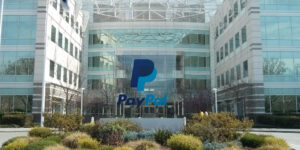Category: 1.4 Open Source Foundations
-

Interpreting the purpose of the Open Usage Commons foundation
Yesterday, the Open Usage Commons (OUC) foundation announced itself. It is a non-profit which wants to ensure free and fair trademark use of the open source projects under its guidance. My Twitter feed was quick to denounce the OUC as a vanity foundation. It certainly is not. A vanity foundation serves to aggrandize its creators,…
-

Three reasons why companies are creating their own open source consortium
Most open source these days, certainly the most widely used open source, is developed by companies. Open source, by definition, is competitively non-differentiating, so companies can join forces in its development. To so do peacefully, however, they need good governance that preempts conflicts among the participating companies. Such governance is usually provided under the auspices…
-

The ecosystem of openKONSEQUENZ, a user-led open source foundation (video)
Today, Nikolay Harutyunyan presented some of our work on openKONSEQUENZ, a user-led open source consortium that develops software for local energy distributors. Below, please watch the talk (local copy); the talk is based on the same-name research paper.
-
![The ecosystem of openKONSEQUENZ, a user-led open source foundation [OSS 2020]](https://dirkriehle.com/wp-content/uploads/featured/10145-seoul-buddhist-temple-monk-ringing-300x150.jpg)
The ecosystem of openKONSEQUENZ, a user-led open source foundation [OSS 2020]
Companies without expertise in software development can opt to form consortia to develop open source software to meet their needs, as an alternative to the build-or-buy decision. Such user-led foundations are little understood, due to a limited number of published examples. In particular, almost nothing is known about the ecosystems surrounding user-led foundations. Our work…
-
![Managing commercial conflicts of interest in open source foundations [ICSOB 2019]](https://dirkriehle.com/wp-content/uploads/featured/10180-penang-usm-bioinformatik-300x150.jpg)
Managing commercial conflicts of interest in open source foundations [ICSOB 2019]
Abstract: When companies opt to open source their software, they may choose to offer the project to an open source foundation. Donating the software to an open source foundation offers a number of advantages, such as access to the foundation’s existing tools and project management. However, in donating the software, the company relinquishes control of…
-

A Simple Model of the Organizational Support of Open Source Projects
I’m very much interested in the governance of open source projects, in particular if these are user-led projects. With this post, I’m proposing a basic terminology to talk about the formal organizational structure underlying the governance of such open source projects. As the following two lists show, there are only three basic situations. First, there…



